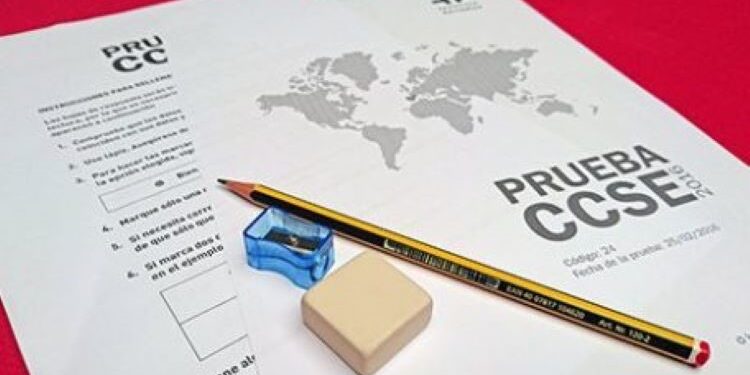Eduardo González
The Constitutional and Sociocultural Knowledge of Spain test (CCSE test), prepared by the Instituto Cervantes and which is necessary to apply for Spanish nationality, has exceeded one million registrations since its launch in November 2015.
Specifically, 1,009,054 people had signed up for these tests at the end of last May, as reported yesterday by the Cervantes Institute in a press release. Of all the candidates who have taken it since the creation of this test, 97.09% (871,950) have been approved.
By nationality, Venezuelans (129,093), Colombians (125,782) and Moroccans (91,861) are the origins that top the list of candidates. 71% of them come from Spanish-speaking countries. Furthermore, women enrolled outnumber men: 54.30% compared to 45.70%.
The majority of candidates have taken the exam in Spain, 96% (914,554), in one of the 212 exam centers that are spread throughout the country. Almost all of those who took the exam outside Spain did so to request Spanish nationality due to Sephardic origin, of which 26,274 did so in Mexico, 13,525 in Colombia, 11,445 in the United States and 8,527 in Venezuela, among others. Since January 2024, the test is only carried out in examination centers located in Spain, since the law for obtaining Spanish nationality for Sephardim is no longer in force.
The CCSE exams are held on the last Thursday of each month for general candidates, except in the months of August and December, when no exam sessions are organized. The registration period is still open for the CCSE calls for July (until July 4), September (until September 5), October (until October 10) and November (until November 7).
The exam consists of 25 questions (out of a total of 300 possible) that deal with knowledge of the Spanish Constitution and the social and cultural reality of Spain. It is organized around two large sections: Government, legislation and citizen participation in Spain (15 questions) and Spanish culture, history and society (10 questions). It has a maximum duration of 45 minutes and is written in the variety of contemporary peninsular Spanish.
The CCSE test has been evolving and adapting to the needs of candidates over the almost nine years since its launch. Currently, the last Tuesday of each month is dedicated to special sessions for non-literate people, which consist of the oral administration of the exam. The test is audio recorded to keep a record of the candidate’s responses.
The Instituto Cervantes can facilitate access to the CCSE exam tests under special conditions for those candidates who have some type of disability, difficulty or impediment. Likewise, it administers the tests for candidates who reside in closed religious centers, are admitted to health centers for a period of more than two months, or candidates confined in penitentiary centers. The Instituto Cervantes has a free, ad-free application for mobile devices that allows you to prepare and practice the CCSE test with guarantees.







